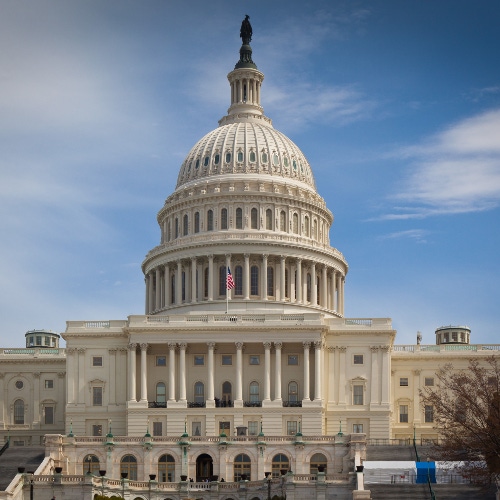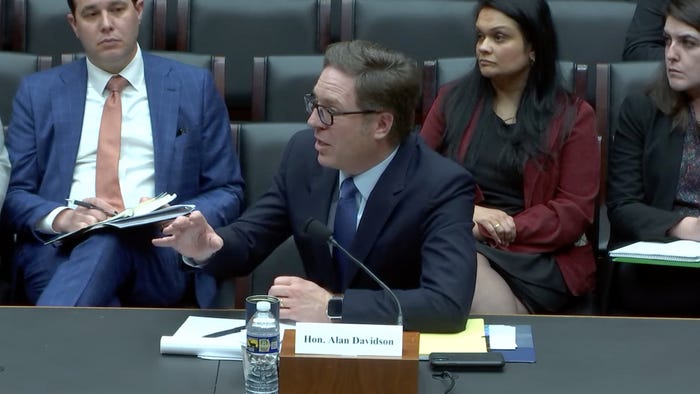Davidson: Lapse in ACP funding will have negative effect on BEAD
'We won't be able to reach our goal of affordable networks without it,' said Davidson of the ACP during a House hearing. The program is projected to run out of funds by next year.

Alan Davidson, administrator at the NTIA, told a House committee on Tuesday that a lapse in the Affordable Connectivity Program (ACP) would be detrimental to the agency's broadband programs, namely the forthcoming $42.5 billion Broadband, Equity, Access and Deployment (BEAD) program.
"Affordability is critical to our success here, and ACP has played an essential role in recent years in making sure that we've got affordability in Internet access," said Davidson. "We won't be able to reach our goal of affordable networks without it."
Davidson's remarks were made during a House hearing on the oversight and reauthorization of the NTIA. The hearing delved into several areas the NTIA oversees, particularly the Biden administration's Internet for All programs, which includes BEAD, as well as the future of spectrum strategy, broadband mapping and more.
His comments on the ACP, specifically, came in response to questions from Democratic House members who asked Davidson about the impact a lapse in ACP funding will have on BEAD. The ACP, which supports roughly 18 million households with a monthly broadband subsidy of $30 ($75 for homes on tribal land), is expected to run out of funding as soon as next year. While the ACP was passed in the IIJA with bipartisan support by the last Congress, it's unclear if the program shares that support this session and there is currently no plan for its continuation.
Figure 1:  Alan Davidson.
Alan Davidson.
(Source: Screenshot via House hearing on oversight of NTIA; May 23, 2023)
Asked by Representative Marc Veasey (D-TX) whether it will negatively impact BEAD "if Congress cannot come to an agreement to extend ACP funding," Davidson replied: "the short answer is that it will."
Not only will the inability to extend ACP funding harm the millions of American families relying on the program to afford broadband services, but – as Davidson explained – it will harm the department's deployment efforts as well. He noted that NTIA's broadband programs "do better if ACP is on a firmer footing" because it enables low-income consumers to subscribe.
"As we build out our broadband networks, we want providers to know that there's some certainty that they'll have customers, particularly in these rural areas, particularly in areas where there's lower-income Americans, they need to know that those Americans are going to be able to afford to get online. The ACP plays a major role there," said Davidson.
Broadband mapping and the F word
In addition to the ACP, the hearing covered familiar ground on legislators' concerns about the state of the FCC's broadband map and whether it will be in good enough shape for NTIA to allocate BEAD funds on its projected date of June 30.
Davidson offered reassurance that the map is a "substantially improved, much more accurate, much more granular map than we've ever had before" and reaffirmed NTIA's intention to make BEAD allocations next month.
"We want the maps to be very good. We also know that we need to move out with some urgency here, because every week that we wait on those maps is another week that we are not giving the states their money and another week that we are not connecting people with the broadband that they need," said Davidson. "So eight months ago we said that we were going to make these allocations in June. We're still on track to make them in June."
As they often do, some legislators also lodged the F word at Davidson a few times... Fiber, that is, and BEAD's prioritization of deploying it over wireless and other technologies. The topic has been a major concern for the wireless industry, and the subject of myriad studies into the benefits and drawbacks of a fiber focus versus a "tech-neutral" approach to broadband deployment in the US.
As he often does, Davidson reassured members that states will have flexibility in what technologies they fund via BEAD grants, expressing that while the NTIA wants to get fiber built out in as many locations as possible it will not be at the expense of getting everyone connected.
"We take very seriously the mission we've been given, which is to connect everyone in America with high-speed, reliable, affordable broadband. And we know that the only way we're going to do it is with that all-of-the-above approach," said Davidson.
"We fully expect that in places where it's challenging, there will be generous amounts of other technologies besides fiber ... There will also be fixed wireless, there will also be satellite used. And states will have and are given a tremendous amount of flexibility under our plan to set their own thresholds and take their own approach."
Related posts:
— Nicole Ferraro, editor, Light Reading, and host of "The Divide" on the Light Reading Podcast.
Read more about:
ACPAbout the Author(s)
You May Also Like




_International_Software_Products.jpeg?width=300&auto=webp&quality=80&disable=upscale)







